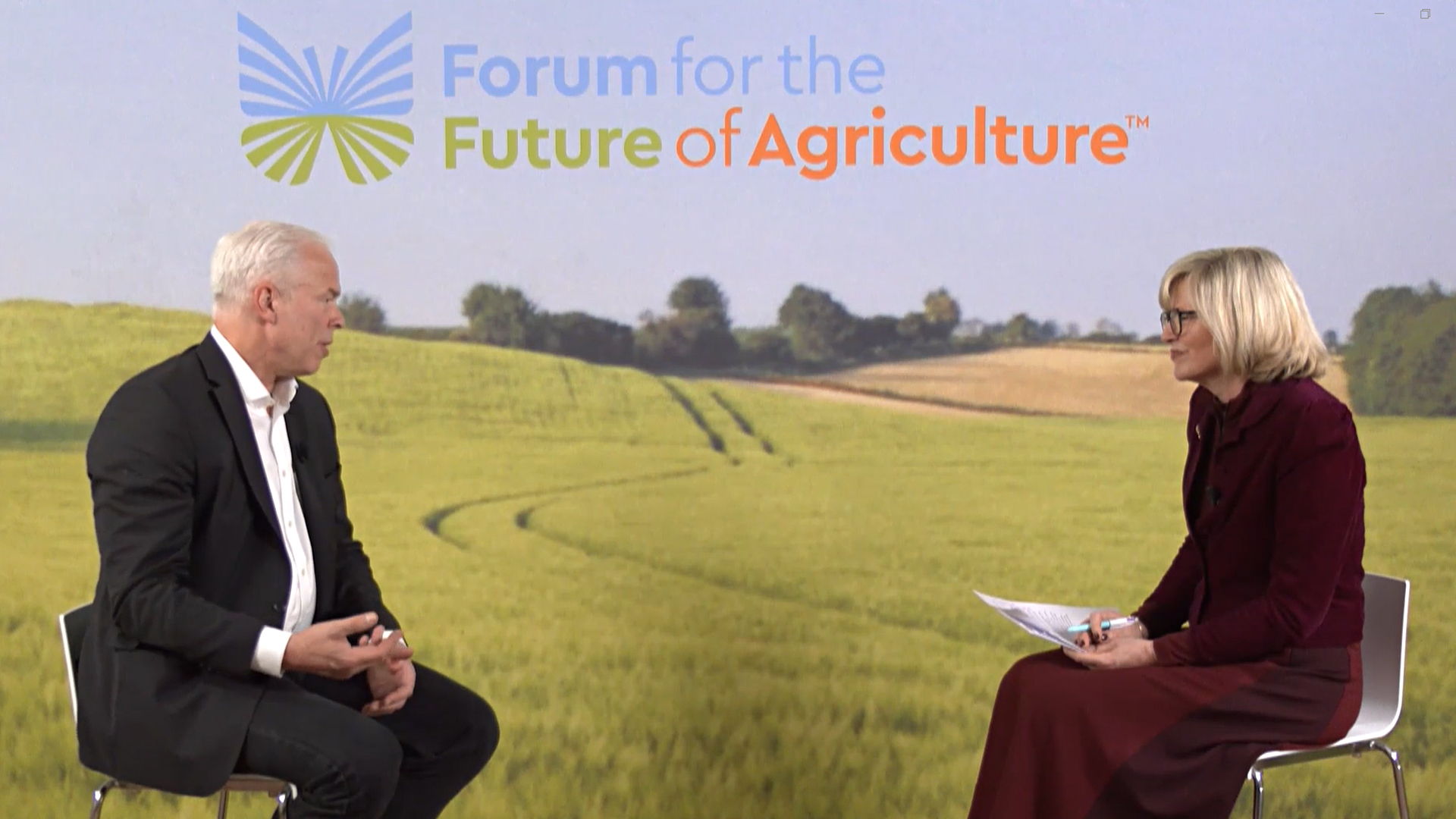Food Systems Podcast 79
Creating economic opportunities for farmers to contribute to sustainability: Insights from the Forum’s Annual Conference 2025 with Prof. Dr. Harald Grethe
Tuesday, Aug 26, 2025
In this edition of the Food Systems Podcast, recorded at the Forum’s Annual Conference 2025, Alex Turk talks to Prof. Dr. Harald Grethe, Director of the independent think tank Agora Agriculture and Head of the Agricultural Development and Trade Group, Humboldt-University of Berlin.

Here is a summary of the conversation.
At Agora you foster an open source approach to your work. You see a diversity of views: does that build strength?
We use a science-based approach, so facts and evidence are important. But we also include a diversity of views by talking to stakeholders. Policy proposals need to be scientifically sound and have the support of enough stakeholders. We need to understand their views to create good proposals.
In terms of resilience, how important is a balance of views and science in agriculture?
To strengthen the agricultural sector, we should not just impose targets through law. Instead, we must create economic opportunities that make it attractive for farmers to contribute to biodiversity and climate change mitigation. This approach makes them more resilient to both changing societal demands and environmental changes like precipitation and heat.
And that is all part of implementing the transition, which was the theme of the Forum. How would you summarize your main message to the Forum?
We need to create economic opportunities for farmers to contribute to sustainability. Keep a strong budget for the Common Agricultural Policy, but stop using it for income support. Instead, focus on paying farmers for the public services they provide, such as biodiversity and climate change mitigation.
Do you see this as a policy lever that will move agriculture from being part of the problem to part of the solution?
Yes, exactly. We need to change the framing. It’s unfair to blame farmers for not providing sustainability services when they aren’t being paid for them. Since agriculture uses about half the land in the EU, its potential contribution is huge. We need to make it a fair deal where farmers can earn a good income from their sustainability efforts.
In your panel, did you hear this message reflected back to you by other panellists?
Yes, I heard it from many panellists. However, we’re in a bubble, and the message hasn’t yet reached politicians. The focus is still on neediness and using money to support those most in need, stressing that farmers on average have lower incomes than the rest of society, which isn’t supported sufficiently by the data. It’s important to get this message into policymaking.
How much does the Vision (for Agriculture and Food) paper help in advancing this conversation?
The Vision paper is a typical political paper with many different things to serve many interests. It has good points to build on, but it fails to unify income and sustainability, competitiveness and sustainability. The paper presents payments for public goods and payments for income support as two separate things. A better story is that payments for public goods should be at a level where farmers can earn a good income. Income should come from services delivered, not from transfers because someone is needy. You earn well from providing biodiversity. You earn from animal welfare. The Vision paper could have gone further.
You can watch or listen to this podcast on the Website, iTunes, Spotify or Podbean.

Prof. Dr. Harald Grethe
Harald Grethe has been Professor for Agricultural Trade and Development at Humboldt-University of Berlin since 2016. Previously,...see more
In 2022, he founded the independent Thinktank Agora Agriculture, Berlin, which he leads together with Christine Chemnitz.
Harald Grethe chairs the Scientific Advisory Council of Thünen-Institute since 2022, has been a member of the Scientific Advisory Board on Nature Based Solutions for Mitigating Climate Change at the Federal Ministry of the Environment, Germany, since 2024 and was Chairman of the Scientific Advisory Board for Agricultural Policy, Nutrition and Consumer Health Protection at the Federal Ministry of Food and Agriculture, Germany, from 2012 to 2020.
